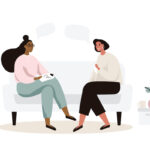
As we prepare for #BIGSPD23 in Glasgow (starting tomorrow), a psychiatrist and mental health occupational therapist explore a review of stigma occurring as a result of a borderline personality disorder diagnosis, coming to their own conclusions on the key messages.
[read the full story...]







